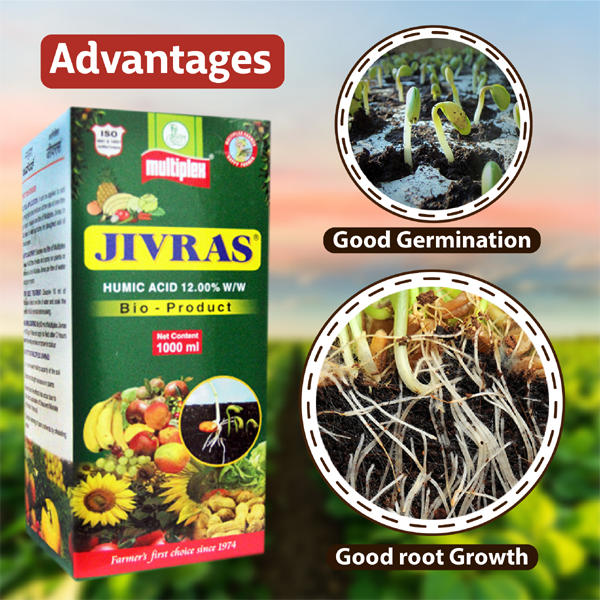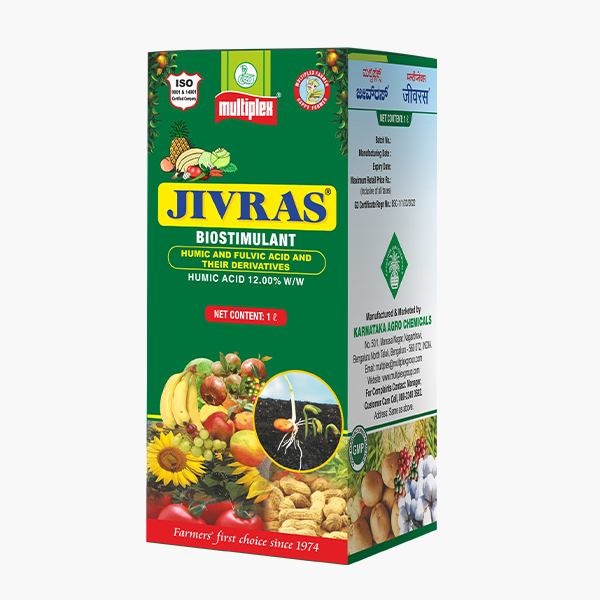AgriBaba
Jivras
Jivras
Couldn't load pickup availability
Benefits of Multiplex Jivras:
1. Compatibility with Agrochemicals:
- Can be mixed with insecticides and fungicides, making it versatile for integrated pest and disease management.
2. Soil Health Improvement:
- Reduces soil erosion and enhances the soil's water-holding capacity, which improves drought resistance in crops.
3. Nutrient Management:
- Reduces the need for inorganic fertilizers in the root zone by releasing nutrients to plants as needed, promoting efficient nutrient uptake.
4. Seed Enhancement:
- Increases seed germination and viability when used for seed treatment, leading to better crop establishment.
5. Fruit Quality Improvement:
- When combined with Zinc, it increases the size of fruits, enhancing yield and quality.

Specifications:
- Composition:
- Contains 12.0% w/w Humic Acid , which is a key organic component that improves soil structure and nutrient availability.
- Crop Compatibility:
- Suitable for all crops , making it a universal soil and plant health enhancer.
Dosage & Methods of Application:
1. Soil Application:
- Apply 1.5 litres per acre through irrigation to improve soil health and nutrient availability.
2. Urea Treatment:
- Mix 500-1000 ml of Jivras with 100 kg of urea .
- The urea will turn brown after treatment.
- Allow it to sit for 2 hours before applying to the soil. This treatment enhances the efficiency of urea.
3. Foliar Application:
- Dissolve 3.0 ml of Jivras in 1 litre of water .
- Spray the solution on both sides of the leaves to promote nutrient absorption through foliage.
4. Seed Treatment:
- Dissolve 100 ml of Jivras in 1 litre of water .
- Soak the seeds in this solution for 1 hour before sowing to improve germination and seedling vigor.
Key Takeaways:
- Multiplex Jivras is a multifunctional product that enhances soil health, improves nutrient efficiency, and boosts crop productivity.
- Its compatibility with other agrochemicals and ease of application make it a valuable addition to modern agricultural practices.
- By improving drought resistance and reducing the need for inorganic fertilizers, it supports sustainable farming practices.
Share




